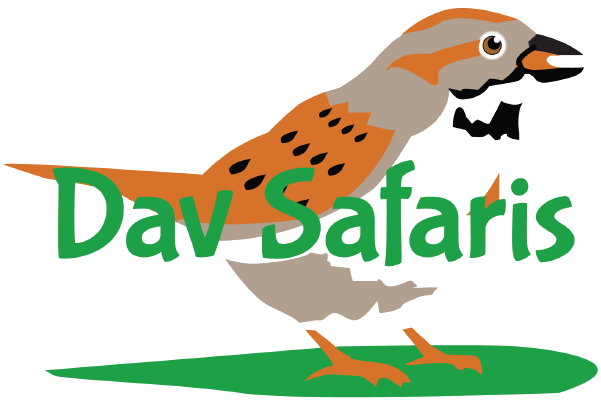Exploring Zimbabwe Wildlife in the dry season
Zimbabwe, located in southern Africa, is known for its variety and abundant wildlife. The country is home to a diverse range of animal species due to its environments, which include savannas, woods, and mountains. As a result, there are various questions about Zimbabwe's fauna. In this article, we'll look at some of the most frequently asked questions regarding Zimbabwe's animals and provide extensive answers to them.
What are Zimbabwe's iconic wildlife species?
Zimbabwe is famed for its iconic wildlife species, such as the African elephant, lion, buffalo, leopard, and rhinoceros. These "Big Five" species are a popular attraction for visitors and wildlife enthusiasts visiting the nation. In addition to these iconic species, Zimbabwe is home to a wide variety of other wildlife, including giraffes, zebras, hippos, crocodiles, and numerous bird species.
Which national parks and reserves offer the best opportunities to experience Zimbabwe's wildlife?
Zimbabwe has several world-class national parks and reserves that provide excellent animal viewing possibilities. Hwange National Park, Zimbabwe's largest national park, is recognized for its abundant elephant population and diversified fauna. Mana Pools National Park, a UNESCO World Heritage Site, is well-known for its stunning scenery and diverse fauna, which includes elephants, hippos, and Nile crocodiles. Other important parks are Matobo National Park, Gonarezhou National Park, and Matusadona National Park.
What conservation measures are underway to conserve Zimbabwe's wildlife?
Wildlife conservation is a high priority in Zimbabwe, and the country has launched several projects to preserve its natural heritage. These include anti-poaching patrols, community-based conservation initiatives, and collaborations with international conservation groups. Furthermore, ecotourism contributes significantly to conservation efforts by offering long-term economic benefits to local populations and encouraging the protection of wildlife and their habitats.
How has the conflict between humans and wildlife been resolved in Zimbabwe?
Human-animal conflict is a major issue in Zimbabwe, particularly in rural areas where people live alongside wildlife. Wildlife corridors, fences and barriers, and compensation schemes for farmers who suffer crop damage or livestock predation are among the measures being taken to reduce this conflict. Furthermore, education and awareness programs seek to promote peaceful cohabitation between humans and wildlife while limiting unpleasant interactions.
What are the main dangers to Zimbabwe's wildlife?
Zimbabwe's wildlife, like that of many other African countries, is under threat from a variety of factors, including habitat degradation, poaching, human-animal conflict, and climate change. Agriculture, mining, and infrastructure development all contribute to habitat degradation, which endangers numerous species. Even with concerted conservation efforts, poaching for ivory, rhino horn, and bushmeat remains a big threat. Climate change poses additional issues, affecting wildlife habitats and contributing to ecological imbalances.
How can ecotourism help animal conservation in Zimbabwe?
Ecotourism is vital to Zimbabwe's wildlife conservation efforts. Ecotourism contributes to conservation efforts by offering financial incentives for the preservation of natural landscapes and wildlife populations. Furthermore, responsible tourism practices raise environmental awareness and build a sense of stewardship among visitors, promoting the sustainable use of natural resources.
What unique wildlife experiences may visitors have in Zimbabwe?
Visitors to Zimbabwe can enjoy a variety of unique wildlife experiences, including guided game drives, walking safaris, birdwatching excursions, and boat cruises on the Zambezi River. The chance to see the annual spectacle of elephant migration in Hwange National Park or predators in action during a night safari adds to the fascination of visiting Zimbabwe's wildlife.
How does Zimbabwean wildlife contribute to the country's cultural heritage?
Wildlife is culturally significant in Zimbabwe, where many traditional beliefs and activities are inextricably linked to nature. Animals are prevalent in local culture, art, and ceremonies, indicating a strong spiritual bond between humans and wildlife. Conservation initiatives frequently use traditional knowledge and indigenous viewpoints to ensure that cultural legacy is protected alongside biodiversity
To summarize, Zimbabwe's wildlife captivates the imagination with its diversity and grandeur. The country's natural heritage, from towering elephants roaming the savannas to elusive leopards stalking the woodlands, is a source of amazement and inspiration. By asking questions about Zimbabwe's wildlife, we obtain a better understanding of the problems and opportunities involved in preserving this invaluable legacy for future generations to enjoy and protect.
9-Days Luxury Northern Namibia Safari
The Thrill of Discovery Rare Birds in the Rift Valley Region
